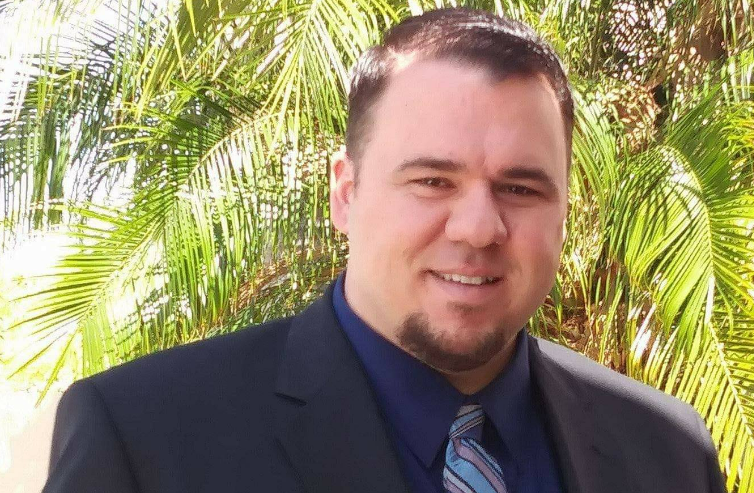
by Corinne Murdock | Mar 13, 2024 | Education, News
By Corinne Murdock |
Arizona’s auditing agency for the Department of Veterans Affairs (VA) found no wrongdoing in its recent audit of Grand Canyon University (GCU).
The Arizona State Approving Agency (SAA) undertook the audit in response to the ongoing Federal Trade Commission (FTC) lawsuit against GCU for allegedly deceptive advertising and illegal telemarketing. The FTC sued GCU in December, several months after the Department of Education (ED) fined the university over $37 million for allegedly deceiving doctoral students into paying more for their degrees than advertised.
In the SAA letter to GCU reviewed by AZ Free News, SAA said that its audit yielded no evidence supporting the Biden administration’s claims.
“The Arizona SAA did not have any substantiated findings based on our review of Grand Canyon University,” stated SAA’s letter to GCU. “There are no findings impacting the continued approval of Grand Canyon University at this time. There are no follow-up actions required by Grand Canyon University at this time.”
SAA announced its audit in January, the second one to take place in under a year; the last SAA audit occurred last May.
GCU President Brian Mueller told AZ Free News that the SAA’s findings were in agreement with two favorable court rulings in recent years, all of which found GCU to not be guilty of the issues that the Biden administration claims exist. Mueller said that these discrepancies were “troubling,” and further indication of an unjust and purposeful targeting.
“The SAA, our accrediting body and two federal judges all looked at the same set of facts as the bureaucrats in Washington, D.C. and came to the complete opposite conclusion,” said Mueller. “To have zero findings, praise and a court ruling that our disclosures are clear on one end and then have the U.S. Department of Education impose its largest fine ever on the other… that is very troubling. To be targeted in this manner by the federal government is an egregious example of overreach and the weaponization of these federal agencies.”
The Higher Learning Commission, GCU’s accrediting body, assessed the university’s doctoral disclosures to be “robust and thorough,” providing a “clear” academic and financial pathway for prospective students.
The Biden administration appears to be alone in its unfavorable assessment of GCU; further records to provide context as to why have not been made available for public review, either.
The lack of transparency prompted the Goldwater Institute to sue the Biden administration last month. ED denied their public records request seeking the documents that informed ED’s decision to fine GCU. The records request was spurred by the fact that ED didn’t include student complaints or visitations to GCU as part of their investigation into the university.
In our report issued several days before ED announced its record fine into the university, the Biden administration apparently coordinated efforts between ED, FTC, and VA to investigate GCU after the university sued ED for denying its nonprofit status. The IRS granted nonprofit status to GCU in 2018, but it took until late 2019 for ED to deny the status.
SAA recognized GCU as a private nonprofit in its most recent audit report.
Several months after GCU sued ED in early 2021, the agency launched a multi-year, off-site review of GCU. Several months after ED’s announcement, the FTC announced that it found GCU in violation of federal law; each violation incurs civil penalties of up to $50,000. The last time the FTC exercised the authority it leveled against GCU was in 1978.
The FTC, ED, and VA began their investigations into GCU in 2022.
Corinne Murdock is a reporter for AZ Free News. Follow her latest on Twitter, or email tips to corinne@azfreenews.com.

by Daniel Stefanski | Mar 12, 2024 | Education, News
By Daniel Stefanski |
Many Arizona state schools may not be teaching students about the Holocaust.
Earlier this month, State Superintendent of Public Instruction Tom Horne revealed that 322 of 750 Arizona districts and charter schools (approximately 43 percent) “have affirmed that they are teaching about the Holocaust and other genocides as required by state law.” Most of the state’s district and charter schools did not respond, according to Horne.
At the start of the year, Horne requested that “all Arizona district and charter schools report their compliance with state law that requires students to be taught about the Holocaust and other genocides.”
In a statement, Horne said, “After the horrific events of October 7, there was a one-sided pro-Hamas presentation at Desert Mountain High School that produced antisemitism among students and made Jewish students uncomfortable and fearful. If Holocaust studies are presented properly, students will be less gullible to antisemitic presentations. I am gratified that 322 districts and charters are following the law, with many of them taking anywhere from two to four weeks to do the instruction. That is commendable, but we need this bill to be sure all districts and charters are in compliance with the intent of the law.”
The law giving the state’s schools chief authority to require the information from Arizona schools was HB 2241, which was passed by the legislature and signed into law by then-Governor Doug Ducey in 2021. The bill was sponsored by Alma Hernandez, a Democrat. It passed both chambers with almost unanimous support. Ducey, in his letter to then-Secretary of State Katie Hobbs, informed her that he was signing the legislation to “ensure that we continue to teach our students the history of past atrocities, which in return will instill greater compassion, critical thinking, societal awareness, and educational growth in our students.”
Horne’s original deadline for Arizona schools to report to the state Department of Education was January 24. However, Horne announced in early February that he would be extending the deadline to February 23 due to the lack of responses from schools.
Not only did Horne extend the deadline for schools to report compliance with the law, but he is hoping state legislators and the governor are able to strengthen the statute for future students. He again noted that two Arizona state lawmakers have embarked on a bipartisan mission to pass a bill that would “require students in grades 7-12 to twice complete a three-day program on the Holocaust and other genocides.”
The Republican Superintendent added, “Current state law requires teaching about the Holocaust and other genocides, but it does not specify how much time is spent. We surveyed districts and charters to find out if they are following the law, but more than half did not respond. This shows the need for HB 2779, a bipartisan bill sponsored by Republican Rep. David Marshall and Democrat Rep, Alma Hernandez to be passed and signed into law.”
Daniel Stefanski is a reporter for AZ Free News. You can send him news tips using this link.

by Elizabeth Troutman | Mar 5, 2024 | Education, News
By Elizabeth Troutman |
Paradise Valley School Board candidate Eddy Jackson said he is running to represent stakeholders, not a teachers union.
“I refuse to seek the endorsement or campaign funds from district unions or contractors because I seek to represent all stakeholders, including all teachers, not just those in the union,” Jackson said in an email. “I will vote to give staff members that opted to not be in the union a seat at the table for contract negotiations and district committees.”
As a school board candidate, Jackson said he received an email from a district union Political Action Committee congratulating him for qualifying for the November 2024 ballot and inviting him to participate in their questionnaire to be considered for their endorsement. The PAC is called “Paradise Valley Fund for Children PAC.”
“Is their focus really children?” Jackson asked.
The PAC’s questionnaire focuses on questions about their power and influence in the district and district funding. Jackson noticed a lack of questions about declining enrollment, school closures or raising academic achievement, which he believes are the real issues parents care about.
Candidates funded by the PAC in 2022 elections recently voted to close Desert Springs Prep Elementary, Sunset Canyon Elementary, and Vista Verde Middle School.
The recommendation to close these schools arose out of the School Closure and Boundary Review Committee that violated Open Meeting Law and the public’s trust by holding secret, closed door meetings throughout 2023 and waited to reveal their recommendation until December, after the record $340 million dollar district bond was narrowly approved by voters, according to Jackosn.
Eddy Jackson is a father of four kids who attend school in the district. He is running on the platform of preparing students for success, protecting parental rights, supporting great teachers and staff, advocating for taxpayers, and protecting and putting students first.
Elizabeth Troutman is a reporter for AZ Free News. You can send her news tips using this link.

by Elizabeth Troutman | Mar 2, 2024 | Education, News
By Elizabeth Troutman |
More than 900 Arizona schools declined to answer if they teach Critical Race Theory.
State Superintendent of Public Instruction Tom Horne released figures showing that 900 schools would not answer five academic focus questions related to matters such as ensuring schools do not inappropriately expose students to explicit content and avoiding instruction that promotes racial division such as Critical Race Theory.
Of Arizona’s 2,467 district and charter schools, as of Feb. 29, 1,565 have affirmed that they are following these guidelines, but 902 have not.
Other questions attempt to ensure that any sexual content is developmentally appropriate, administrators fully support teacher discipline, and schools avoid excessive distractions such as Social Emotional Learning.
Social Emotional Learning claims to equip children with the ability to manage emotions, feel empathy for others, and maintain positive relationships, but it integrates Critical Race Theory in the education system.
“It is scandalous to see that more than 900 schools have declined to be transparent with parents who entrust their children to be educated by these schools,” Horne said. “Parents have the right to be fully informed about what their neighborhood schools value and how instructional time is used.”
The media claims public schools don’t teach CRT, Horne said. The superintendent said this is false, as the Balsz Elementary District on the east side of Phoenix explicitly and publicly teaches CRT.
“The fact that more than 900 districts and charter schools did not answer the question proves that the problem is widespread and distractions from academics are contributing to low test scores,” he said.
“Every instructional minute is precious, and every minute should be devoted to academics, not unnecessary distractions, lessons that divide people by race, or exposing students to subject matter that is not developmentally appropriate,” Horne continued.
The schools that declined to answer the questions will have that information on their school report card provided on the department’s website. If schools eventually choose to respond, their report card will be updated with that information.
Early next week, the department will finish compiling and releasing information on whether schools are following state law that requires instruction on the Holocaust and other genocides.
“Schools have a responsibility to teach to the state standards and graduating students who are academically proficient,” Horne said. “This is simple common sense and easily achievable by every school in the state.”
Elizabeth Troutman is a reporter for AZ Free News. You can send her news tips using this link.

by Elizabeth Troutman | Feb 29, 2024 | Education, News
By Elizabeth Troutman |
Arizona State University requires employees to complete inclusiveness training every two years.
This includes three modules: Inclusive Communities, preventing harassment and discrimination, and Title IX duty to report.
Mandatory training videos include “Fighting Gender Bias at Work,” and “Understanding Intersectionality.”
“The view here is actually an expansive view of inclusion, not a very narrow one,” said Bryan Brayboy, vice president of social advancement at ASU in an introduction video.
The stated goal of training on inclusive communities is to “help create awareness, develop skills to meet the needs of diverse students and develop teams of people capable of working together to advance the ASU mission,” according to the webpage with the training modules.
Other available trainings at ASU include:
- Affirmative action
- Age discrimination
- Americans with Disabilities Act
- Diversity in the workplace
- How to strategically address social justice matters in the workplace
- Implicit bias and microaggressions
- Implicit bias in recruitment
- Tackling implicit bias and microaggressions
The webpage says ASU has more than 80,000 students on its campuses and more than 90,000 learners online. ASU is home to students from all 50 states and nearly 150 different countries.
“That creates a rich blend of backgrounds, making ASU highly inclusive and socioeconomically diverse,” the site says.
Arizona’s three public universities all promote diversity, equity, and inclusion initiatives, according to a Goldwater Institute report.
In the fall of 2022, ASU began requiring diversity statements from approximately 81% of job applicants.
Northern Arizona University required diversity statements from almost 73% of job applicants, and the University of Arizona required diversity statements from almost one third of job applicants.
The universities also encouraged applicants to incorporate critical race theory in written portions of their applications.
In August 2023, all three universities eliminated the use of diversity statements for job applicants after the Goldwater Institute’s report.
Elizabeth Troutman is a reporter for AZ Free News. You can send her news tips using this link.

by Elizabeth Troutman | Feb 27, 2024 | Education, News
By Elizabeth Troutman |
A report shows that almost 40% of educators disciplined in 2023 were punished for sexual misconduct. One third of cases were associated with assaultive (non-sexual) behaviors.
“From only the cases adjudicated in 2023, 39% of cases were associated with sexual misconduct, followed by 28% associated with assaultive (non-sexual) behaviors,” the Arizona State Board of Education’s 2023 Enforcement Action Report says. “Substance-related cases decreased to 15% of all the 2023 cases, while breaches of contract decreased to 7%. Cases associated with fraud and theft remained constant at 11% in 2023.”
The report provides an overview of the type and frequency of discipline it has imposed on educators, certificated and uncertificated, who have participated in unprofessional or immoral conduct.
The number of cases processed by the State Board Investigative Unit has increased, but the board claims this is due to increased staffing and improved efficiency in processing cases, rather than an uptick in activity by teachers.
Still, some parents and parent advocates said their increasing awareness of predators in public school classrooms and lazy administrators desperate to fill classrooms played a significant role in complaints.
“There are few things worse in our society than the abuse of our precious children,” former Arizona Superintendent of Public Instruction Diane Douglas told the Arizona Daily Independent. “Parents send their children to school assuming they will be safe from predators. Yet according to this report 67% of the enforcement cases in 2023 were sexual misconduct or non-sexual assault. This is just of the cases that have been reported and investigated. How many cases go unexposed, unreported and in some cases under-disciplined?”
Douglas wondered how many children may not realize they are being abused because of how they are being sexualized in their school’s sex-ed classes.
“How can people who have been trained as the teachers of our children abuse them in such horrific ways? Shame on our ‘Colleges’ of Education – 25% of the disciplinary actions from ASU. Where is our Board of Regents?”
Male educators represent more than half of enforcement actions, while 39% of actions involve women.
The largest disciplined group, representing 30% of all cases, are educators with secondary teaching certificates, which are usually used to teach middle and high school.
Educators with elementary teaching certificates and educators with substitute teaching certificates make up more than one third of all discipline cases.
Elizabeth Troutman is a reporter for AZ Free News. You can send her news tips using this link.






